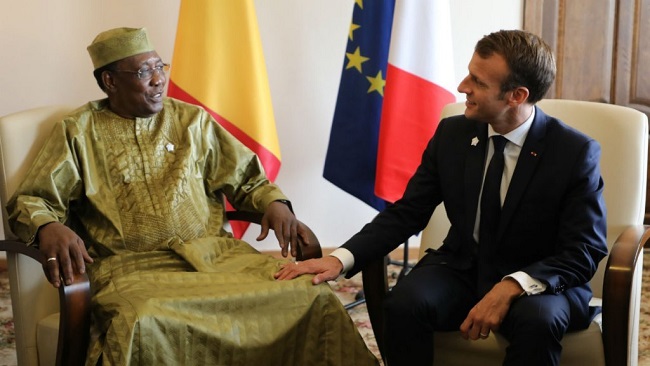Chad: 30 years of poverty with President Deby despite oil revenues
December 1 marks the thirtieth anniversary of Idriss Deby’s rule over Chad.
Coming to power after a coup against Hissene Habre, Deby quickly retired his army uniform to become a politician.
In 2016, Habré was convicted of war crimes by a specially-created international tribunal in Senegal.
Survivor in a complex region
Governing a country located in a chronically unstable region, the 68-year-old leader has exhibited spectacular resilience, surviving coups, rebel attacks and foreign invasions.
Using his powerful Zaghawa tribe and the loyal support of his ruling Patriotic Salvation Movement party, Deby has managed to survive central Africa’s complex geopolitics, where tribes and militias control resources such as water, land and minerals.
He’s been accused of running a one-party state, even though questionable elections have been held from time to time.
During elections or protests, N’Djamena has been accused of cutting off the internet.
A war veteran, Deby has instigated conflict, even encouraged it to his advantage – carefully juggling crises in Sudan, Libya, and the Central African Republic. With a powerful army, he’s seen as an important force for stability in central Africa, the Lake Chad region, and the Sahel.
Chad has so far been spared much of the militant violence that has rocked Niger, Mali and Burkina Faso. Deby’s forces have also been credited for dealing Nigerian terror group Boko Haram a blow.
Poverty despite oil revenues
He has managed to keep former colonial master France, the US and China close, often relying on Paris for military support and on Beijing for the country’s financial needs.
His opponents have accused him of squandering the country’s oil revenues on buying influence,and buying weapons while his countrymen live in poverty.
According to the United Nations, Chad has one of the highest levels of hunger in the world – with 66.2 percent of its population of 15.5 million living in severe poverty.
The country ranks 187th out of 189 countries on the 2019 Human Development Index.
Source: Africa News





